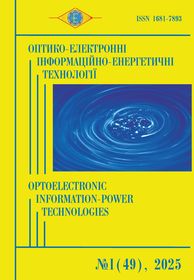Підвищення ефективності RAG для побудови наукових інтелектуальних баз знань
DOI:
https://doi.org/10.31649/1681-7893-2025-49-1-89-97Ключові слова:
штучний інтелект, база знань, великі мовні моделі, LLM, генерація доповнена пошуком, RAG.Анотація
В статті розглядається розбробка інтелектуальної бази знань на основі наукових статей з використанням великих мовних моделей в режимі генерації доповненої пошуком. Досліджено різні методи підвищення релевантності вибірки цитованих джерел та згенерованих відповідей мовної моделі та вибір підходів до побудови мовних генеративних систем з врахуванням специфіки наукових матеріалів українською та англійською мовами. Також розглянуто використання різних мовних моделей для генерації відповідей. В процесі дослідження обрано набір критеріїв для комплексного оцінювання генеративних систем та надано рекомендації для побудови наукових інтелектуальних баз знань.
Розроблено інтелектуального агента, який дозволяє проводити пошук та аналізувати наукові статті у зручній інтерактивній формі з забезпеченням цитувань оригінальних документів.
Посилання
Andriopoulos, K. and Johan, P. (2023). Augmenting LLMs with knowledge: a survey on hallucination prevention. arXiv. URL: https://doi.org/10.48550/arXiv.2309.16459.
Wang, Chenguang, Mu Li, and Alexander J. Smola. Language models with transformers. arXiv preprint arXiv:1904.09408 (2019). URL: https://doi.org/10.48550/arXiv.1904.09408.
Jeong, Cheonsu (2023). A study on the implementation of generative AI services using an enterprise data-based LLM application architecture. arXiv. URL: https://doi.org/10.48550/arXiv.2309.
Brown, T., Mann, B., Ryder, N., Subbiah, M., Kaplan, J.D., Dhariwal, P. and Neelakantan, A. (2020). Language models are few-shot learners. Advances in Neural Information Processing Systems 33, 1877–1901. DOI: https://doi.org/10.48550/arXiv.2005.14165.
Cui, J., Li, Z., Yan, Y., Chen, B. and Yuan, L. (2023). ChatLaw: open-source legal large language model with integrated external knowledge bases. DOI: https://doi.org/10.48550/arXiv.2306.16092.
Tolga Şakar, Hakan Emekci, Maximizing RAG efficiency: A comparative analysis of RAG methods / Natural Language Processing, Cambridge, Vol. 31, Issue 1, 2025, pp. 1-25.
Toni Taipalus. Vector database management systems: Fundamental concepts, use-cases, and current challenges / Cognitive Systems Research, Vol. 85, 2024. DOI: https://doi.org/10.1016/j.cogsys.2024.101216.
Roucher A. RAG Evaluation. URL: https://huggingface.co/learn/cookbook/rag_evaluation.
Herreros Q., Veasey T., Papaoikonomou T. RAG evaluation metrics: A journey through metrics. URL: https://www.elastic.co/search-labs/blog/evaluating-rag-metrics.
Trotman A., Puurula A., Burgess B.. Improvements to BM25 and Language Models Examined. In Proc., 19th Australasian Document Computing Symp., ADCS ’14, 58–65. New York: Association for Computing Machinery. https://doi.org/10.1145/2682862.2682863.
Romanyuk, O., Zavalniuk, Y., Pavlov, S., etc. New surface reflectance model with the combination of two cubic functions usage, Informatyka, Automatyka, Pomiary w Gospodarce i Ochronie Srodowiska, 2023, 13(3), pp. 101–106
Chen, W., Chen, J., Zou, F., Li, Y.-F., Lu, P. and Zhao, W. (2019). RobustiQ: a robust ANN search method for billion-scale similarity search on GPUs. Proceedings of the 2019 International Conference On Multimedia Retrieval (pp. 132–140). URL: https://doi.org/10.1145/3323873.3325018.
##submission.downloads##
-
PDF (English)
Завантажень: 78
Опубліковано
Як цитувати
Номер
Розділ
Ліцензія
Автори, які публікуються у цьому журналі, погоджуються з наступними умовами:- Автори залишають за собою право на авторство своєї роботи та передають журналу право першої публікації цієї роботи на умовах ліцензії Creative Commons Attribution License, котра дозволяє іншим особам вільно розповсюджувати опубліковану роботу з обов'язковим посиланням на авторів оригінальної роботи та першу публікацію роботи у цьому журналі.
- Автори мають право укладати самостійні додаткові угоди щодо неексклюзивного розповсюдження роботи у тому вигляді, в якому вона була опублікована цим журналом (наприклад, розміщувати роботу в електронному сховищі установи або публікувати у складі монографії), за умови збереження посилання на першу публікацію роботи у цьому журналі.
- Політика журналу дозволяє і заохочує розміщення авторами в мережі Інтернет (наприклад, у сховищах установ або на особистих веб-сайтах) рукопису роботи, як до подання цього рукопису до редакції, так і під час його редакційного опрацювання, оскільки це сприяє виникненню продуктивної наукової дискусії та позитивно позначається на оперативності та динаміці цитування опублікованої роботи (див. The Effect of Open Access).


